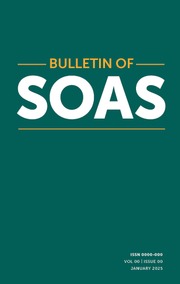Poor sets out to examine the development of the institutions of the Nizari Ismaili imamate in the time of the present Imam, Aga Khan IV, the forty-ninth hereditary Imam. He focuses in particular on the development of the Aga Khan Development Network. The heart of the book begins with a discussion of the Nizari Ismaili Imamate and the issue of authority in a Muslim and a Shii context. The issue is first of all examined up to the mid-twentieth century, after which Poor moves to the key development, the institutionalization of the Imamate in the second half of the twentieth century. “The person of the Imam”, he declares, “is transcended [sic] into the institution and his authority is the very source giving legitimacy to the organizations that function to ensure that the Imam has the necessary means to perform his job”. There follows an examination of Ismaili leadership, the development of a constitution for the community for Aga Khan III, and the remarkable leadership of Aga Khan IV, who has made it clear that his faith is designed not just for spiritual matters but also to be realized by action on earth, first in the service of his community but also for the good of all mankind. Here, interestingly, he echoes the ethos of the worldwide movement of Islamic reform of the past two centuries – the essential need to act on earth in the light of God's guidance. In this examination Poor sets out the centrality of architecture to Aga Khan IV's social vision. In support he quotes Phillip Jodidio: “Architecture is the only art which is the direct reflector of poverty … In architecture there is an inherent and unavoidable demonstration of the quality of life, or its absence”. He also sets out the Aga Khan's deliberative style of leadership and his willingness to take risks. We are left in no doubt as to the pluralism and tolerance which animate his worldview and give his organization an essentially cosmopolitan ethos.
Poor then moves to an overview of the Aga Khan Development Network in operation. We are given a clear picture of its ethical base, its organizational structure, its funding and its international partnerships, alongside its work in architecture, education, health and economic development, all of which is rounded off by a summary of the organization's geographic spread, the scope of its activities, and its impact.
Poor bookends his examination of the Aga Khan Development Network with a discussion of how Weber's concepts of authority – traditional, charismatic and bureaucratic – apply to his Ismaili example. Much of Weber's understanding, he admits, applied to the Nizari Ismaili Imamate. When it comes to the routinization of charisma in bureaucratic form, however, he does not accept that this applies to the Aga Khan Development Network – the authority of the Imam has not been caught in Weber's “iron cage”, though some fear there may be a danger of this happening. Equally, the authority of the Imamate functions beyond the divisions of the nation state. Here there appears to be the possibility for comparison with the Ahmadiyya Muslim community, or the Roman Catholic Church, but none is attempted.
Those who consider buying this book should be aware that Poor is an employee of the Institute of Ismaili Studies in London, a potential conflict of interest about which he is straightforward. He frequently refers to Weber's “Protestant Ethics” as opposed to Ethic. I am, moreover, not entirely convinced by his discussion of Weber and the limitation of the Imam's authority. This said, this is the first overview of the Aga Khan Development Network and its operations, and in this sense of no small value.


